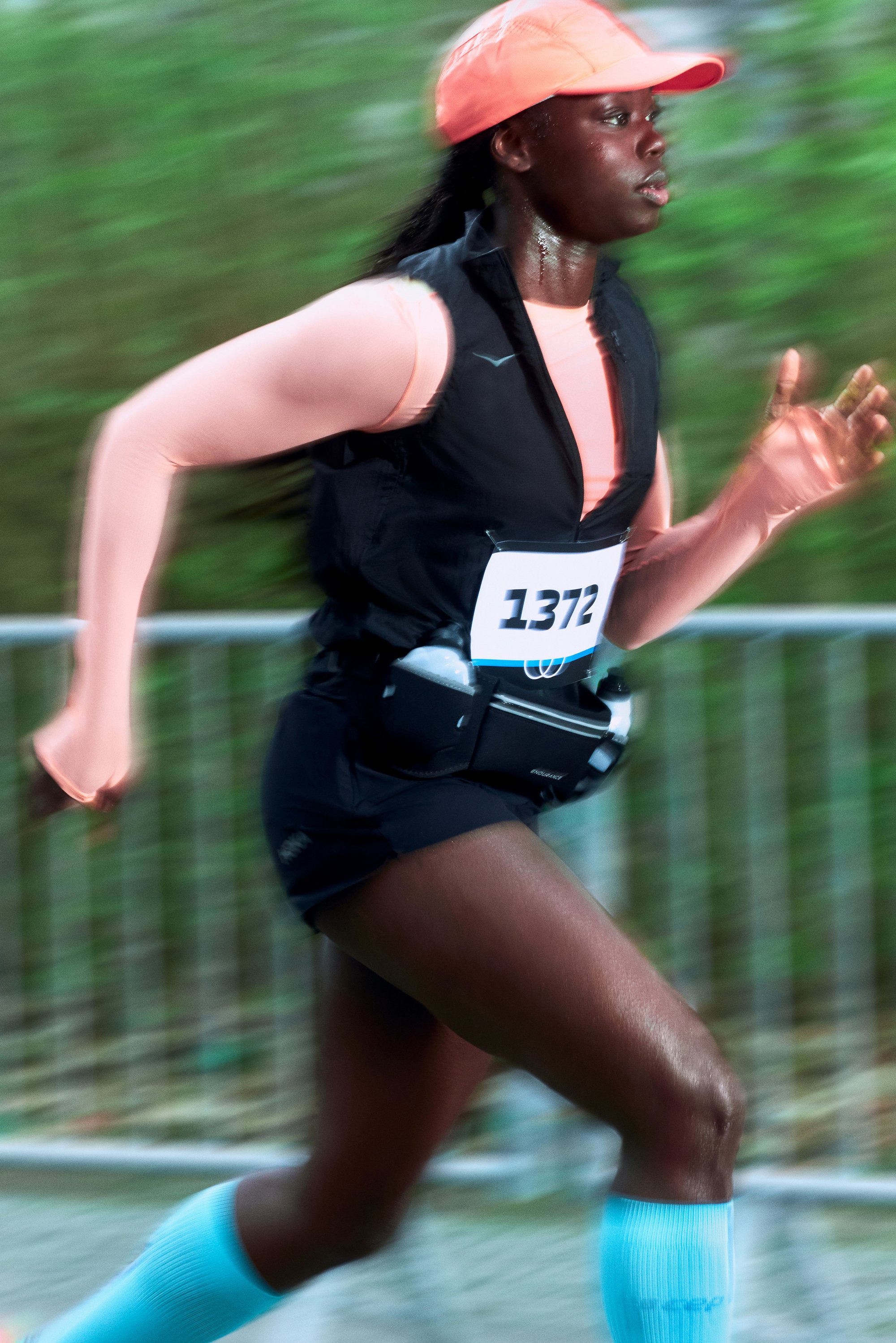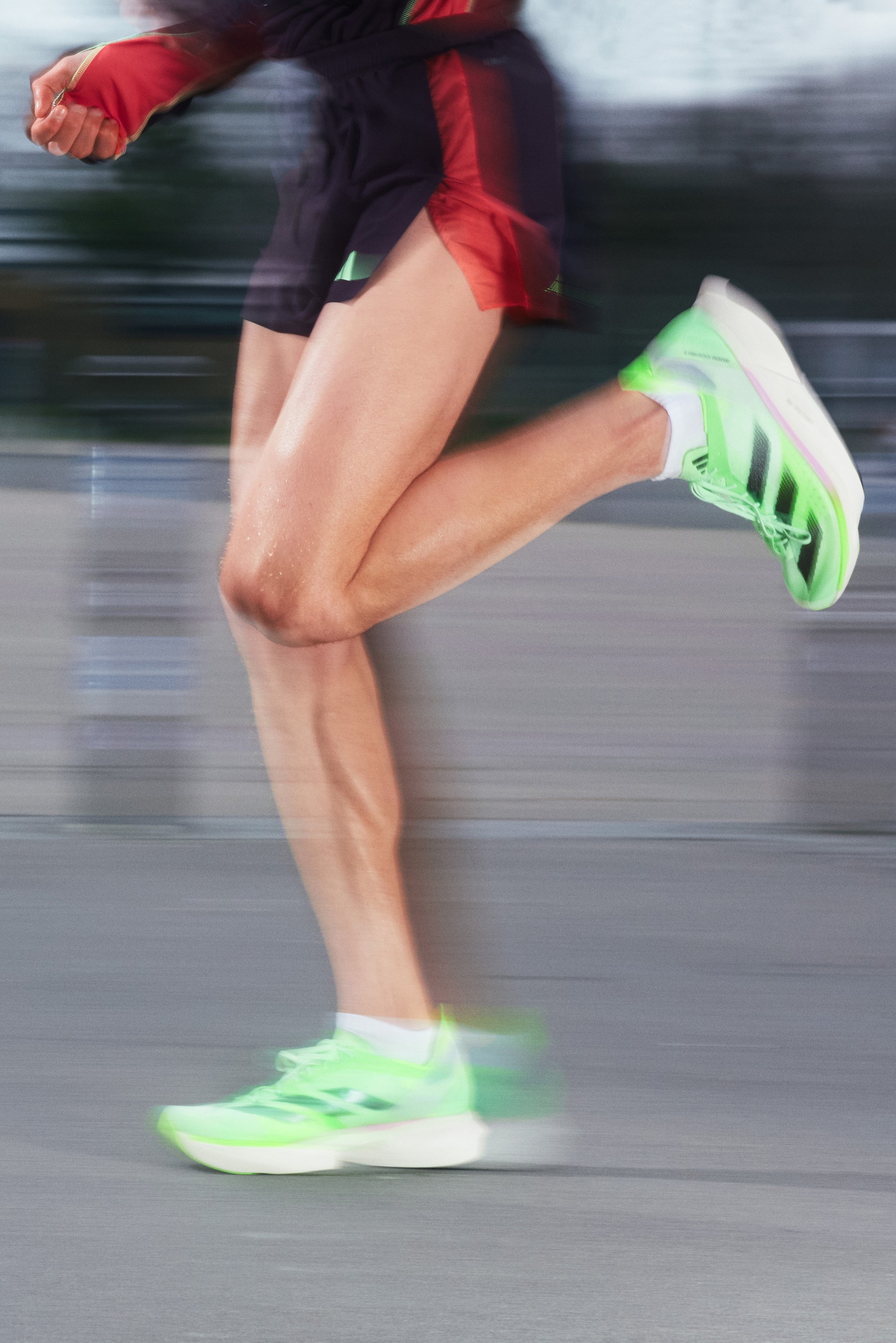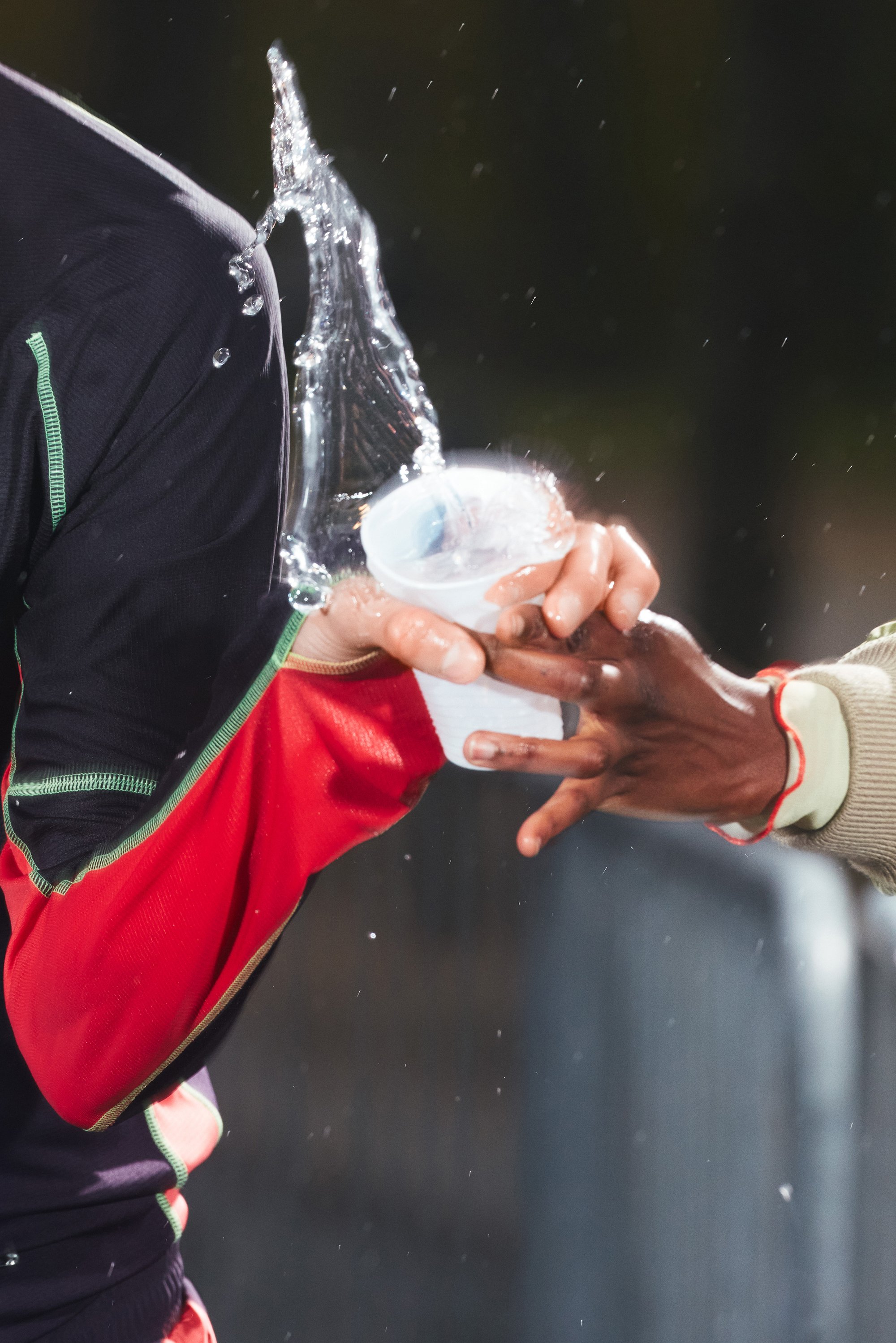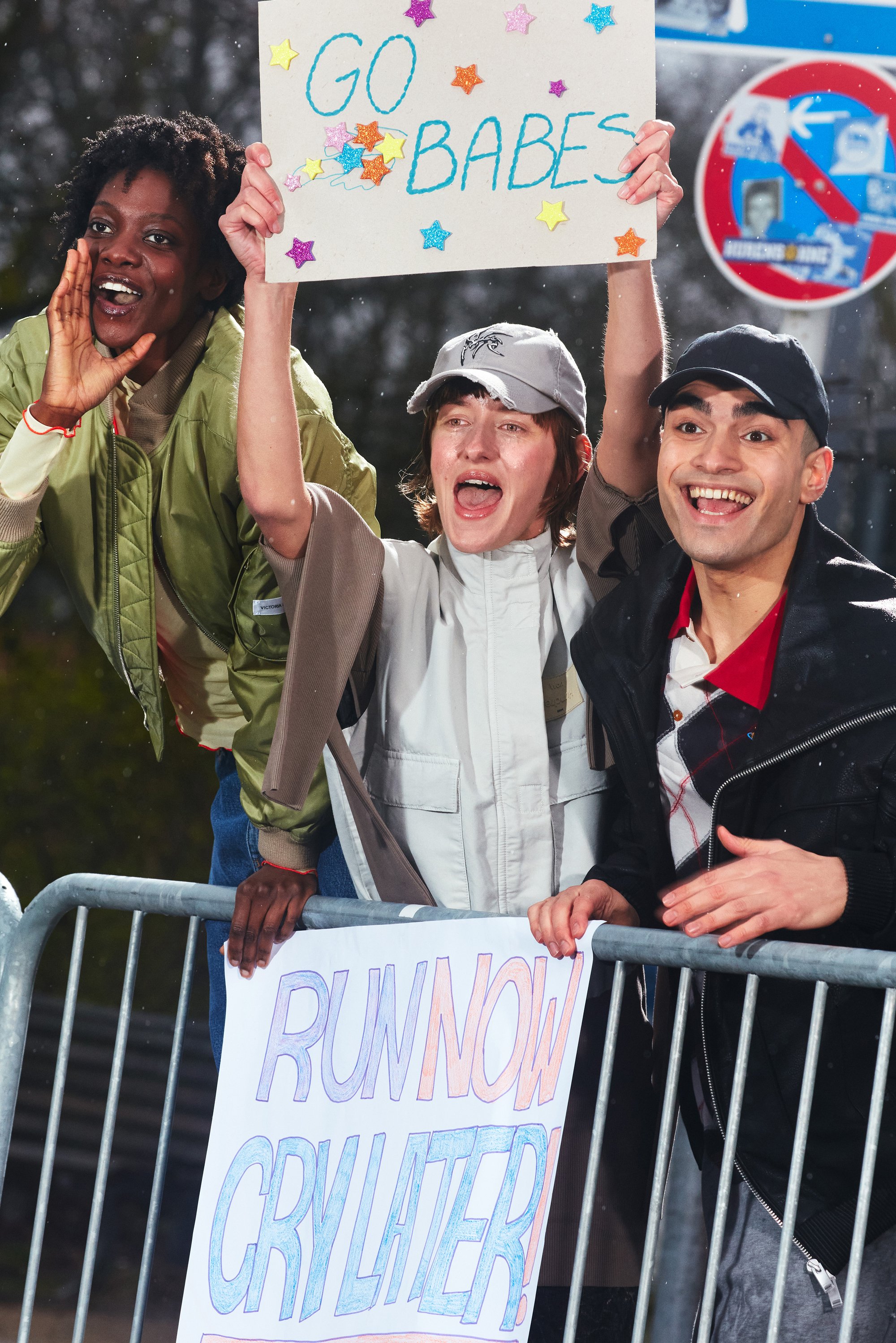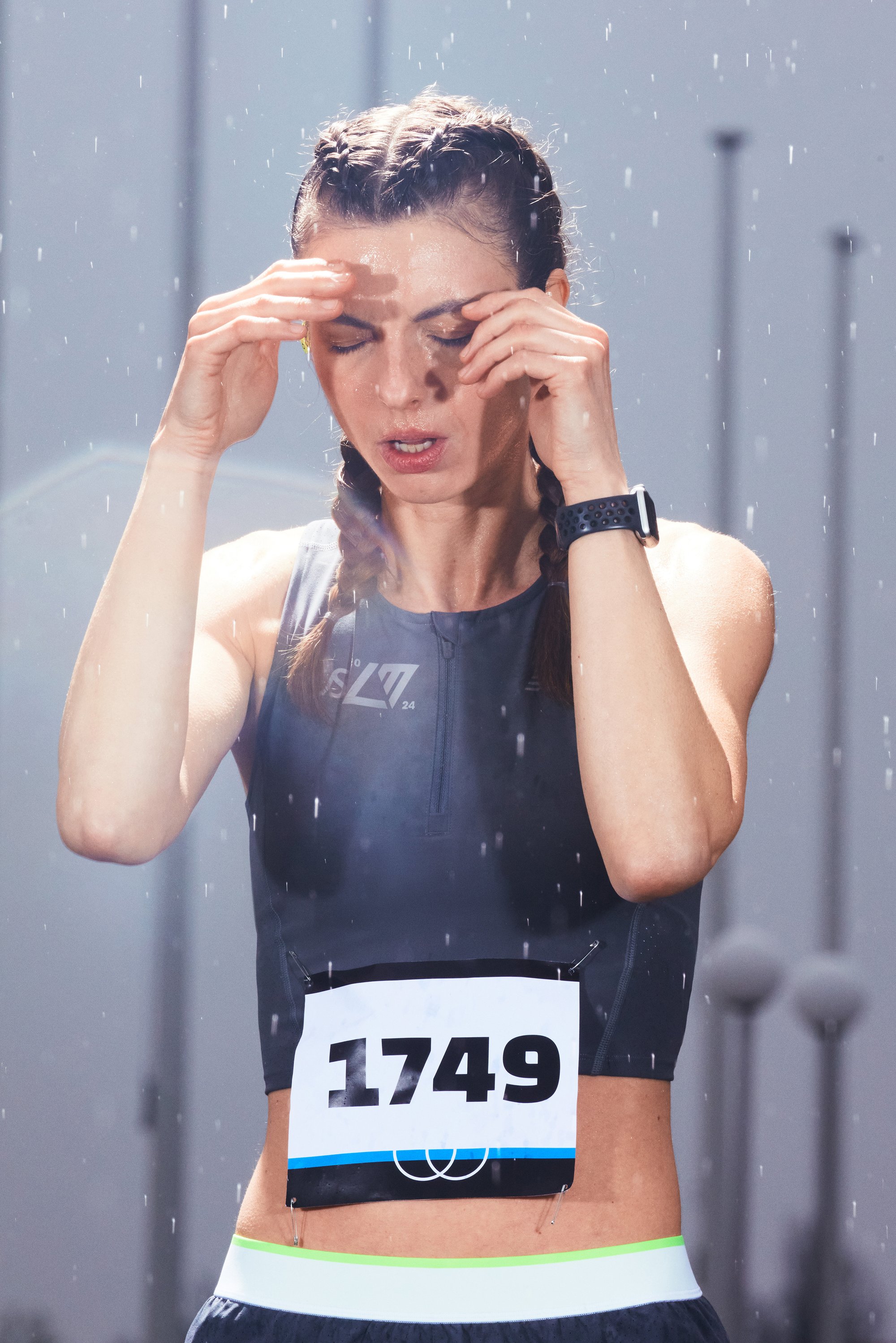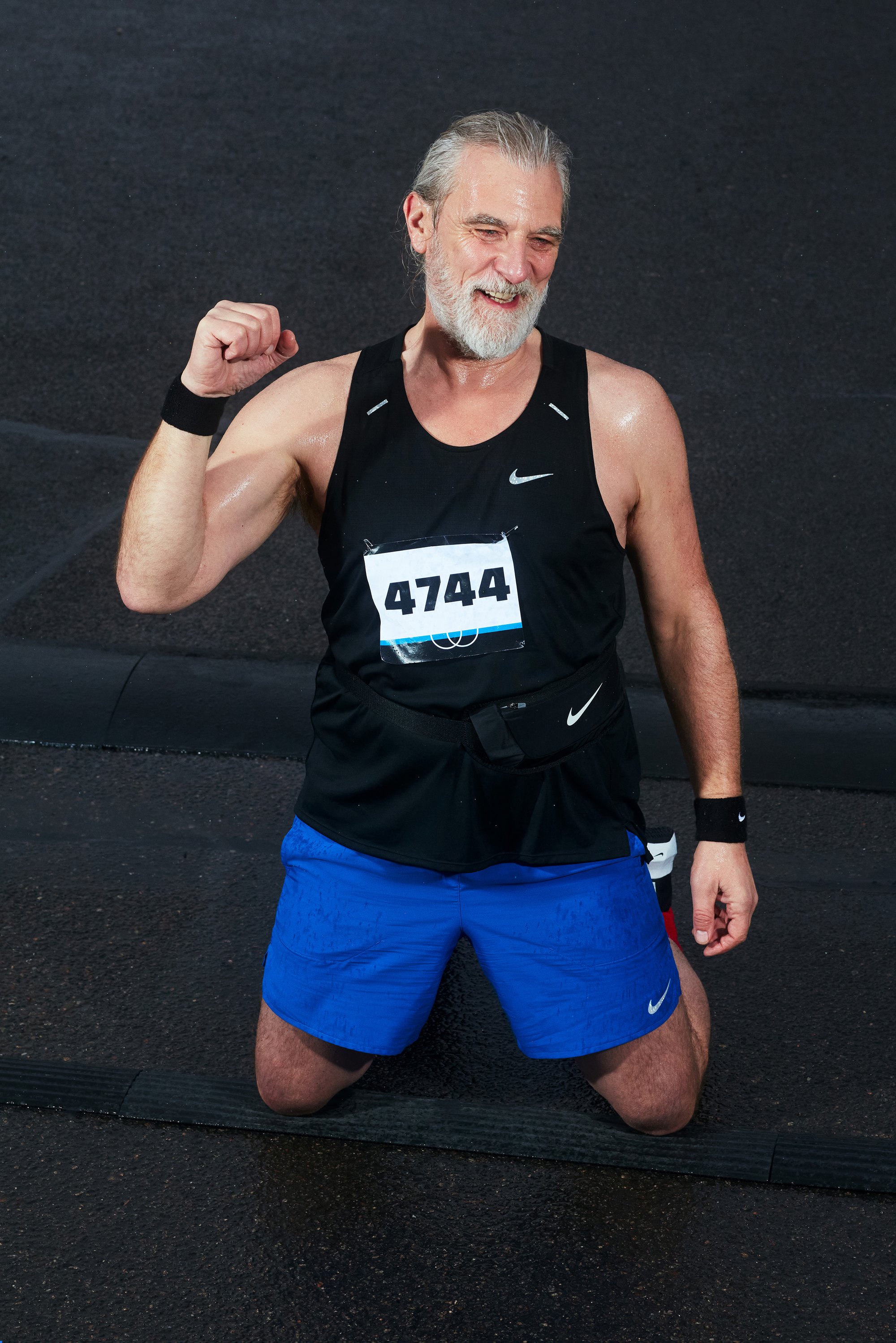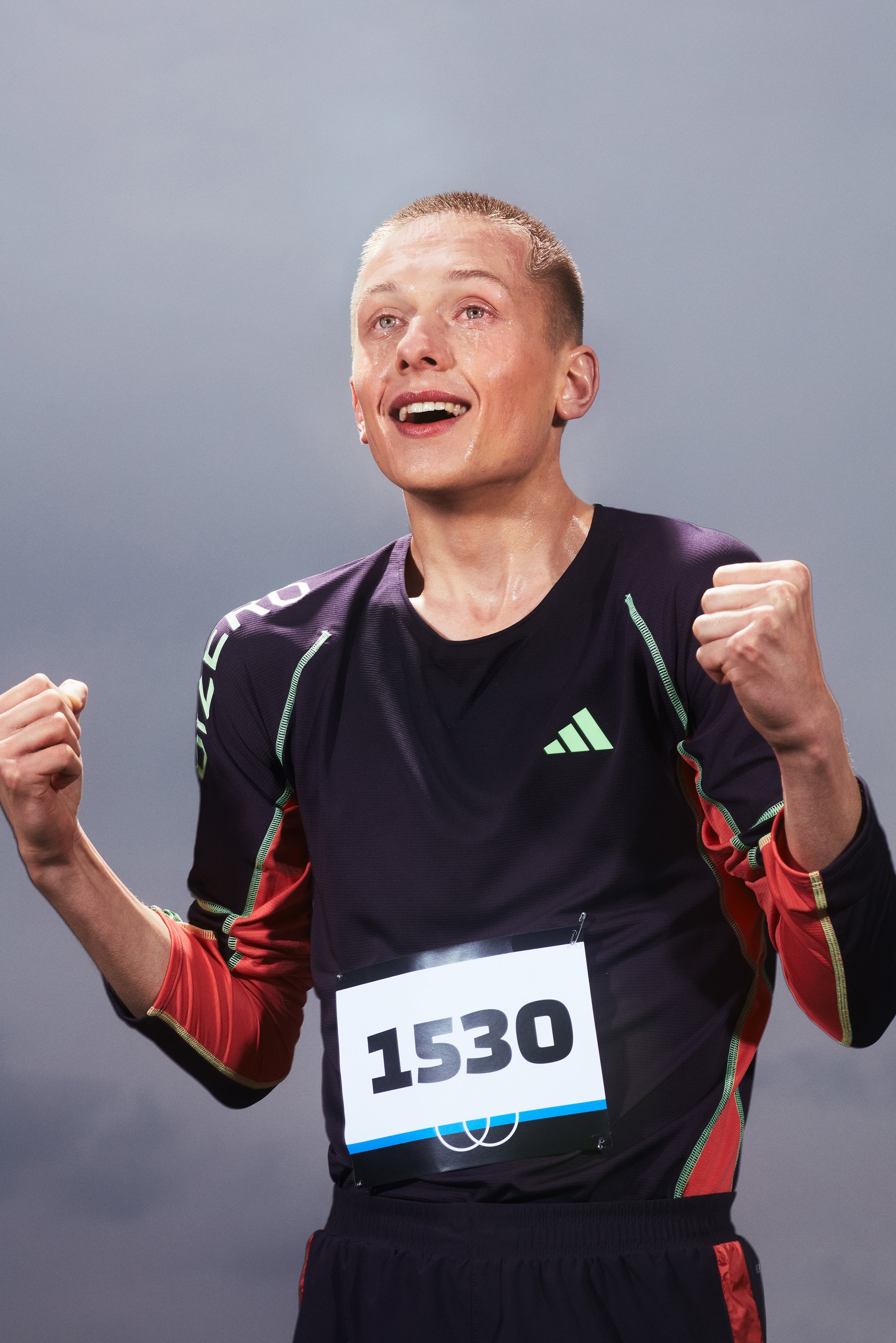
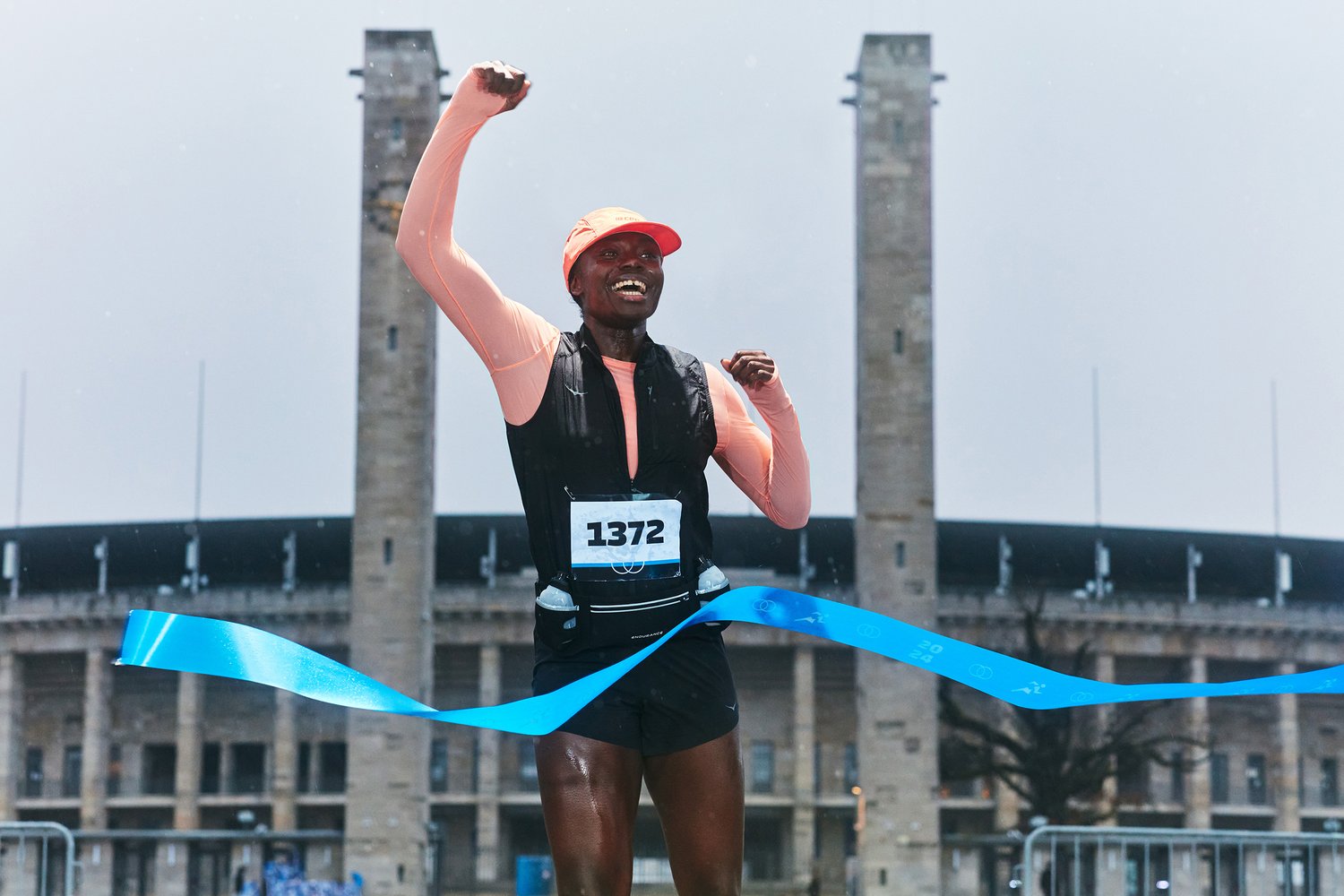

MARATHON TEARSWhy do marathons make us cry?
Not just the runners, who shed well-earned tears as they cross the finish line, but many marathon-watchers find themselves blubbering too. Here’s why.
By Hayley Morgan
15 April 2024 · 6 min read
We humans cry at a lot of strange things — really well-sung songs, dogs being good on the internet, bagpipes, when someone in hardship gets a new backyard on TV, literally any movie on a plane, but also marathons. For both runners and spectators alike, there seems to be an unexpected (to varying degrees) tug of emotion that comes with this very public, very en masse event. But why?
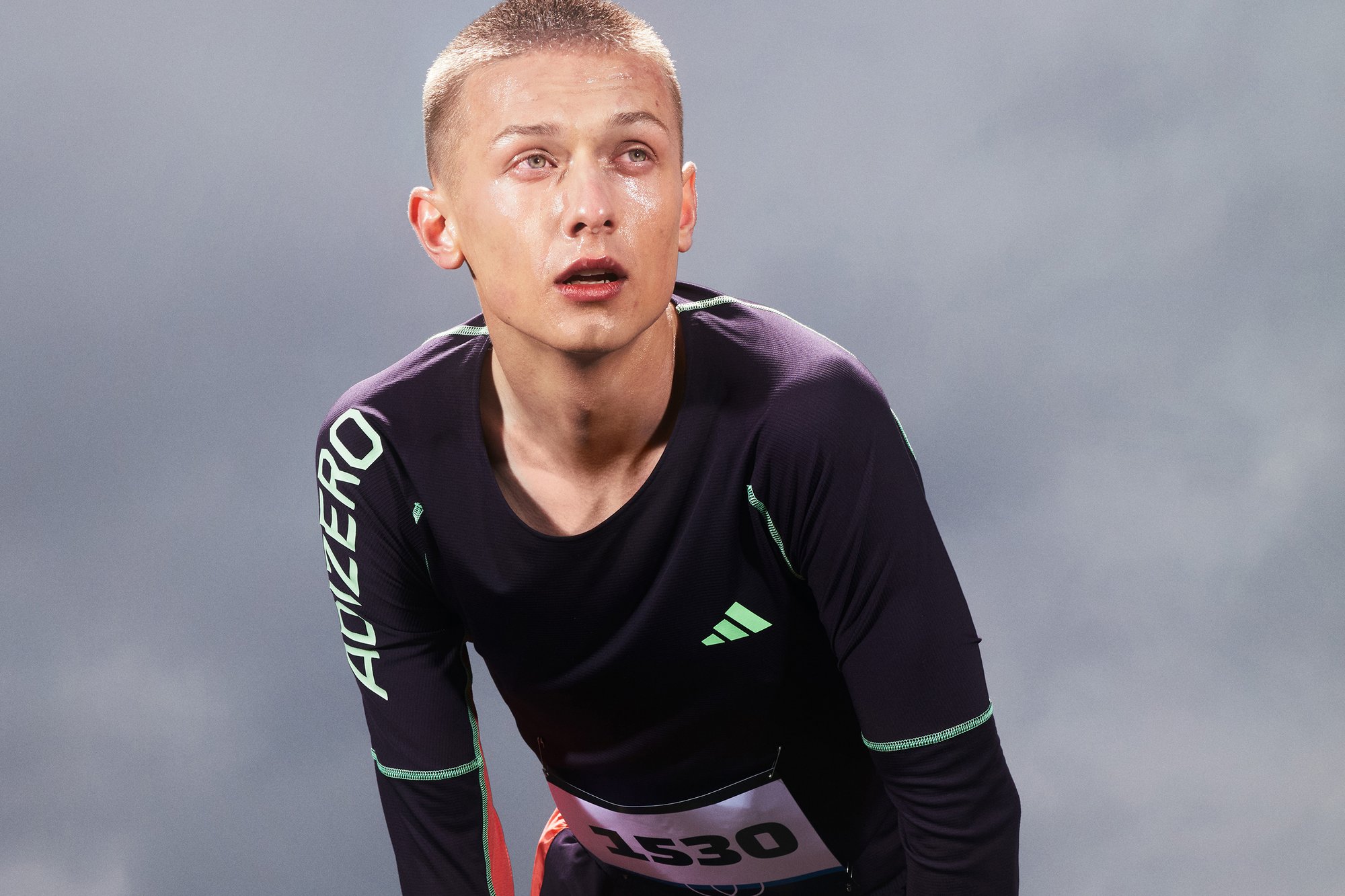
“We cry because we need other people.”
- Ad Vingerhoets
Let’s start with plain and simple crying. Charles Darwin once called emotional tears “purposeless”, but modern science disagrees. Different from reflex tears, which are those that happen when you cut onions or get smoke in your eyes, made of 98% water, emotional tears contain more protein — making them thicker, making them roll down the cheeks more slowly. “This thickness intrigues me,” Heather Christle wrote in an exploration of crying for The Guardian. “The longer it takes for these tears to travel down a cheek, the greater the chance that they will be noticed by another person and their message perceived. Tears are a social signal.” In a great read about crying published in Time almost a decade ago, Ad Vingerhoets, the world’s foremost expert on crying and author of Why Only Humans Weep, said “Tears are of extreme relevance for human nature. We cry because we need other people.” Adding, “So Darwin was totally wrong.”
We spoke to a lot of marathon spectators and participants and the sentiment echoed. “I cry every time I watch a marathon,” Nathalie Heider, who often attends because she knows someone running, tells us. “In the beginning when everyone starts feeling the anticipation, the excitement, the concentration and the nervousness of the runners. Then the finish: the euphoria, the relief, how proud the runners are. They usually also don’t carry a phone with them and I love when everyone is getting a bit panicky trying to find their people but then get even more excited when they find each other.”
Another spectator, Alice Romeril, who at first started attending marathons to support a friend but who says it “turned out to be much less passive than I had initially pictured,” recalls with detail when she first felt the marathon tears pang. “When we pressed ourselves into the line of supporters, I started to hear names being called out and conversations between strangers about why their friends or relatives were running, something shifted,” she explains. “It was like everyone had decided to wear their good will on the outside today over their fleeces and tote bags with tiny Haribos and in front of their A4 banners. Hundreds of them, little families and proud parents with cameras. I turned around to my friend and we both had wet faces and scrunched them into each other’s shoulders.”
Spectator and psychologist, Beata Wilczek who serendipitously caught a marathon while walking her dog near her house, was at first surprised by her emotional reaction. “I wouldn’t think that watching running could make me feel so much,” she says. “After deeper thought, as a psychologist, I came to the conclusion that it’s pretty obvious and quite theoretical: emotional contagion. It’s like being in a cinema and watching a comedy or horror. You laugh or fear with people around you. That’s how we are wired as social animals.”
Social psychology aside, it is still intangible and tricky to describe the ‘thing’ happening during a marathon. “Also there is this energy and intensity that you see in runners’ bodies, and in the people and families cheering for them,” Beata goes on to explain. “So by default being there you feel it too.”
“It’s just such rare positivity.”
- Nathalie Heider
And for Romeril, too, she does her best to describe this thing. “The feeling was a hope bouncing between the crowd and the runners and the city,” she grasps. “People can come around each other and encourage each other, without needing to know anything about anyone.”
“I think a huge part of why it makes me emotional is because it always moves me to see when a crowd of completely diverse people have a similar goal and share similar feelings during it,” Heider adds. “People cheering on and supporting complete strangers as a small act of solidarity that always makes me cry. It’s just such rare positivity that you don’t see often.”
In what feels like an incredible test of endurance — not just the race but the training in the lead up — and a feat of dedication and strength, to answer ‘Why do marathons make us cry?’, we need to consider not just the science of tears, not just the ricochet of energy and hope and triumph, but why we’re there in the first place. Why even marathons?
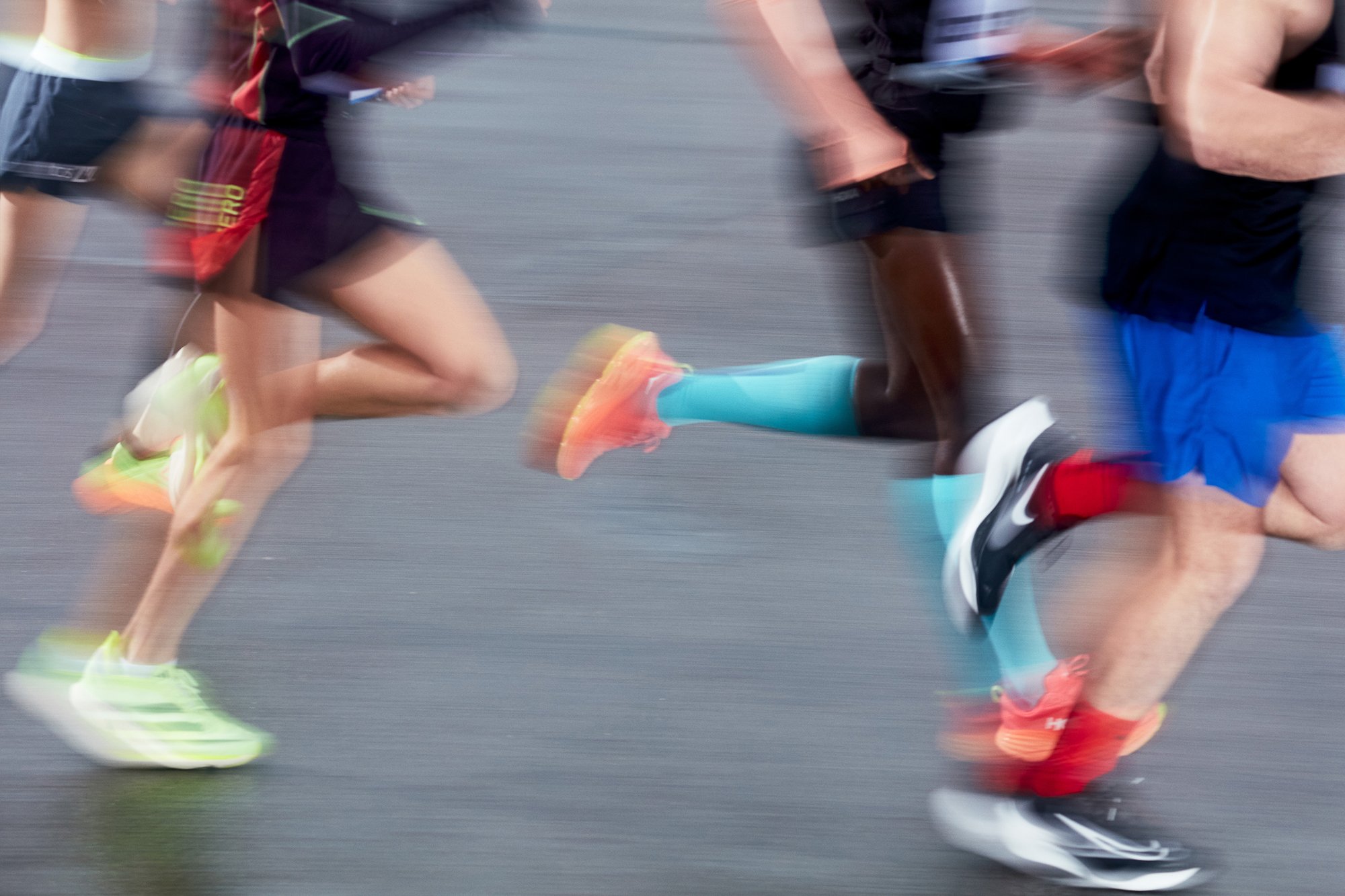
The New York Times ran a piece last year titled ‘What It’s Actually Like to Run the New York City Marathon Route’, with the subtitle ‘Want to feel like the most beloved person on the planet?’, which says it all — and from the “millions of spectators who will greet you in their neighbourhoods” to the “hold that crowd support close, you’ll need it later” to the “let out a ‘woo’ that will echo as you push each other along”, we’d be surprised if you don’t feel at least a tingle just reading the account. We spoke to a marathon runner, Michael Keskerides, in an added attempt to get to the guts of it. “I run marathons so I have an excuse and reason to run almost every day. And I run almost every day so my brain doesn’t implode.” Mental health, got it. “Running marathons is honest,” he explains. “Your time is the direct result of the training you put in and how you execute on the day. If you f*** it up, it’s on you alone. And if you nail it, it’s because of the work you put in to get there. That’s a good feeling.”
For Keskerides, the emotional rationale oscillates between a more tangible chemistry and that almost indescribable ‘thing’ we were talking about earlier. “I think it was a combination of getting to the other side of the unknown, pumping myself full of caffeine and sugar, and putting my body through something super extreme for three hours.”
“I thought about it afterwards and I don’t really think it was a sense of achievement or anything like that that made me emotional,” Keskerides continues. “It was cool to finish and run faster than planned, but my brain moved on pretty quickly to thinking about running faster at the next one.” So what was it that really moved him? “Probably the sacrifices you and your family make to get you there are the primary emotional factor to the feels.”
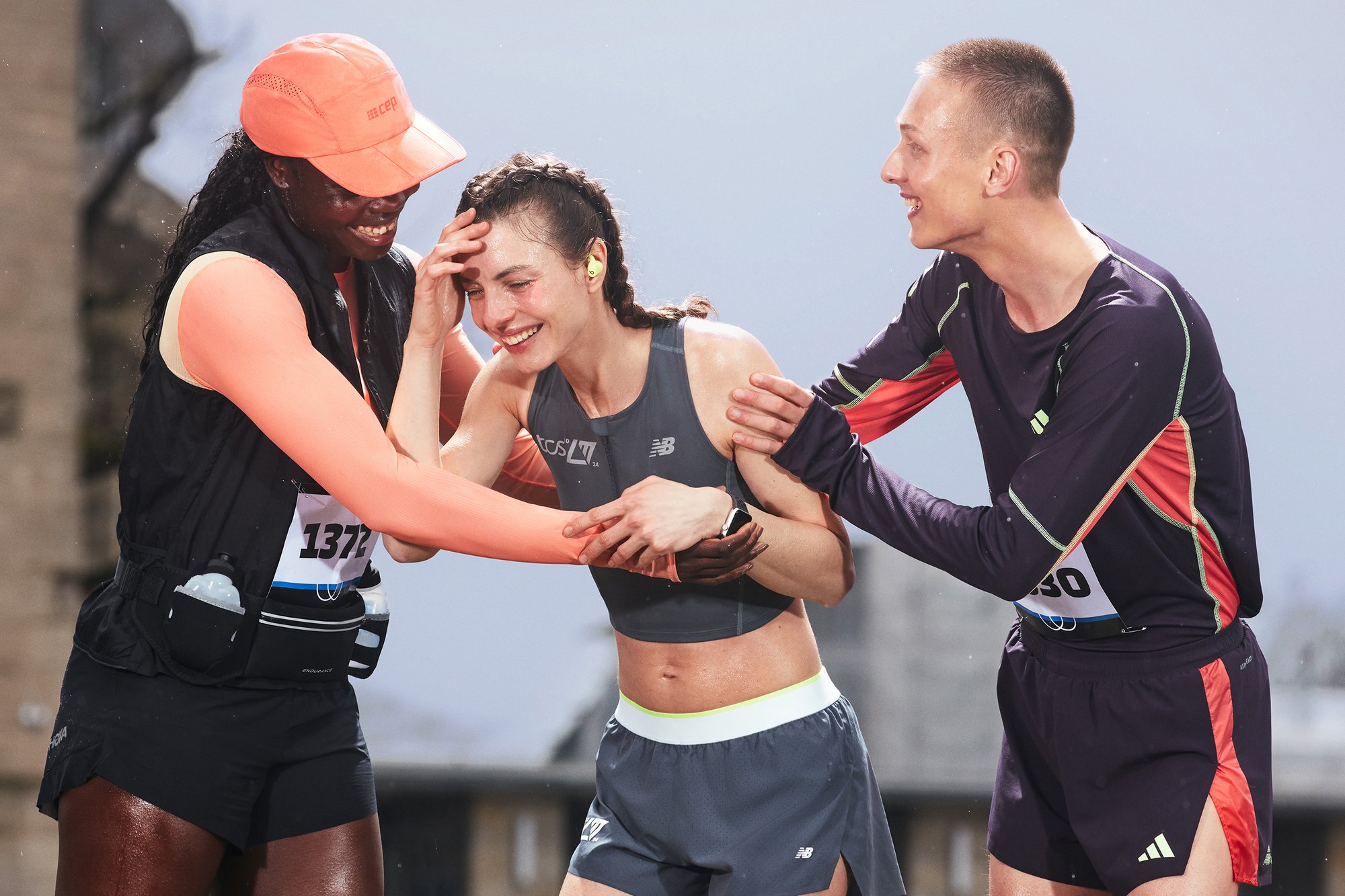
“We cry because we need other people.” Vingerhoets’ theory is adding up, and it’s starting to feel like marathons are about more than just running. They seem to provide a place for us to come together and connect, intimately, publicly, massively, almost in concert together.
“I think it’s because you rarely see such heightened emotions in strangers. It’s such a special moment to be part of,” Heider muses. “I love catching kind interactions in the wild,” Romeril adds. “I collect them up for later on when I need to remind myself that some people out there really do want you to thrive.”
STORIES, SERVED FRESH
Product drops, insider takes and stories through style — straight to your inbox.
